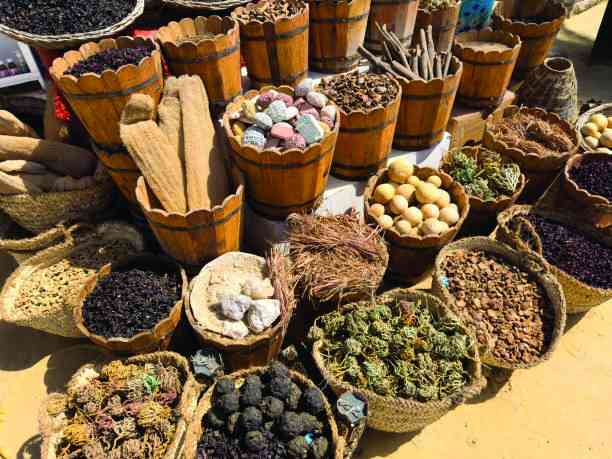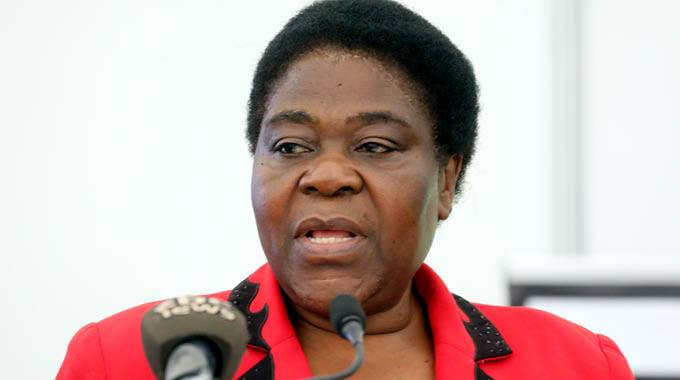
ZIMBABWE’S cancer patients are trooping back to traditional healers — often despised as ‘evil’ in a country dominated by Christianity — for treatment.
Interviews with patients, traditional healers and government officials in a two-month Truth Digggers investigation revealed that most of those pivoting back to herbal medicine do so because they have no choice.
It has been out of sheer desperation — the drastic measures often taken reluctantly — after patients realise they won't be able to continue enduring non-stop pain or the high expense of confronting a scourge that killed 2 743 people in 2018, according to the national cancer registry.
Officials say mortalities have been rising at an alarming rate.
Faced with dreadful prospects of long, painful life under cancer, Zimbabweans are seeing solace in ‘clinics’ that until recently, one would only visit under the cover of darkness.
This is how ancestors lived — with many of them living longer lifespans than what obtains today, traditionalists told Truth Diggers. The most recent national census showed over half of Zimbabwe’s estimated 16 million people are Christians — a religion that drills them to shun ‘evil’ traditional healers.
It is a contentious issue, which is, in a way, also shared by authorities, according to a series of interviews carried by Truth Diggers.
Yet public hospitals have been crumbling under the weight of a brutal currency crisis, high inflation and growing demand for services. Harare based Parirenyatwa Group of Hospitals, the only public hospital equipped to tackle cancer, has been overwhelmed.
- Trial of novelist Tsitsi Dangarembgwa resumes
- In Full: Eighth cabinet post briefing: 13 March 2022
- Letters to the editor: Africa under pressure to tackle youth unemployment
- Out & about: TGIF breast clinic opens in Nigeria
Keep Reading
But even for those that are lucky to access the service, costs have been prohibitive as Zimbabwe’s currency crumbles against the United States dollar.
Official estimates say 93% of Zimbabweans are not on medical insurance, which means they cannot afford high medical fees demanded at specialised public hospitals.
Over 90% are unemployed. And of the 72% that survive through the informal sector, their small businesses have been crumbling as buying power diminishes.
Many die silent, cruel deaths, abandoned by a system that has plundered what was once one of Africa’s finest medical sectors.
In the past two months, Truth Diggers has tracked traditional healers to hear about the inroads that they have made.
In Harare, Mbuya Naphiri, the proprietor of Root Life Herbal Clinic, agreed to speak on record.
“I have healed many cancer patients,” Naphiri told Truth Diggers.
“The patients include women suffering from breast and cervical cancer, and men with prostate cancer. We have had patients coming from hospitals, looking lifeless. After going through our treatment, they leave healthy,” Naphiri said.
“You find that lumps would have disappeared for breast cancer patients. Most male clients are those with prostate cancer. I have seen them flood the clinic,” she said, showing Truth Diggers many testimonials recorded in videos and pictures in her phone.
However, one important thing worries her. “People never come back for review and check-up,” she said, as she narrated how the Root Life Herbal Clinic treatment regime is administered.
“We alkaline the body and remove all toxins,” Naphiri said.
“This boosts the immune system so that the body can fight any virus. When the immune system is strong, we can cure anything. Our prices range from US$50 US$120 for treatment of all types of cancer, which are eight course herbs taken over three to four months,” she said.
This is a huge contrast from medical fees required in public and private hospitals.
Aspect Maunganidze, permanent secretary in the Ministry of Health and Childcare, said rigorous testing and approval processes were crucial before endorsing traditional remedies.
“There are several traditional medical remedies used for chronic diseases,” Maunganidze said. “However, most of them have not been fully evaluated for quality, safety and efficacy.”
He said traditional medicines could be considered cancer breakthroughs if they demonstrated significant efficacy and met certain criteria.
These are pre-clinical and clinical trial requirements, and Phase 1 to 3 clinical trials showing significant tumour shrinkage among others, he said.
“To date in Zimbabwe, we do not have traditional medicinal remedies that have met the above criteria,” Maunganidze said.
Last month Truth Diggers spoke to Rosaline, a cervical cancer patient at Parirenyatwa hospital. She was considering turning to herbal medicine.
“I have been coming here and I am not being assisted,” Rosaline said.
“I am scared. There is a well-known man in Gweru who can cure cancer traditionally. I would rather try that route.”
Sinenhlanhla Phiri, had arrived from Marlborough in Harare the same day, after being diagnosed with Stage 4 cervical cancer.
“I was admitted two months back and it took them three weeks to figure out I have cancer, I have seen people dying. I have met people saying they were diagnosed with cancer but are now cancer free after seeing traditional healers. I will take this route,” Phiri said.
Cancer remains a significant contributor to mortality in Zimbabwe, persistently impacting lives. Parirenyatwa’s radiotherapy department — Zimbabwe's sole cancer treatment centre — has been dogged by equipment failures, staff shortages, and high demand.
With only two functional radiotherapy machines, the unit treats 53 patients daily.
Lovemore Makurirofa, president of the Cancer Association of Zimbabwe, doubted over the efficacy of traditional medicine.
“We have never heard of someone who has been cured,” Makurirofa said.
However, the Zimbabwe National Traditional Healers Association (Zinatha) insisted that herbal medicines were effective.
"There are a lot of herbs that can treat such chronic diseases as cancer," said George Kandiero,” the Zinatha president.






